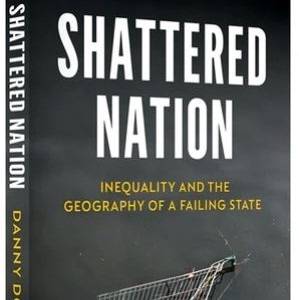
“You would never get a leader of Sinn Fein condemning abortion, homosexual ‘marriage’ or anything of that nature,” he told the Observer.
“But I, as an Irish nationalist and Roman Catholic, never want to see the day when there are abortion clinics in every market town.”
While there is no doubt that Sinn Fein’s left-liberal posturing sits uneasily with the party’s innately conservative constituency, McGeough’s attempt to get Catholic Northern Ireland back on the straight and narrow fell flat on its virginal arse. He lost his deposit in the election despite weeks of high-profile media coverage and well-attended public debates.
After the restoration of Stormont, in which various men pledged to respect each other to the strains of a Brian Kennedy torch song, the poofy province’s favourite subject predictably surfaced again.
Marginalised anti-agreement figures in Ian Paisley’s Democratic Unionist Party and its associated Free Presbyterian church were seeking a wedge issue to snap traditional supporters out of their power-sharing euphoria and return them to the one true path. Observing that Northern Ireland’s new DUP culture minister Edwin Poots would have to approve funding for Belfast’s annual gay pride parade, Free Presbyterian minister Ivan Foster challenged him to square the circle, then sat back to watch the fireworks. Instead, he got a damp squib. Poots is a religious fundamentalist who has previously spoken out against gay marriage. Yet he responded to Foster’s challenge by saying: “There are laws in this country and they have to be observed, whether we like them or not.”
Begrudging as this comment was, it represented a paradigm shift in conservative unionist thinking. Poots had placed the laws of man above the laws of God on matters of sexual morality, rendering unto Caesar that which he had previously rendered only unto Leviticus. A bitterly disappointed Reverend Foster withdrew to fulminate on his website, still blissfully unaware of the dangers of posting anything about sex on a blog called “The Burning Bush”.
It is deeply ironic that the explosion Foster failed to trigger was finally detonated two weeks later by a Dublin-based music magazine. Hot Press is the Irish Republic’s answer to the NME, with added current affairs. Its political interviews are legendary for luring people into revealing somewhat more than they intended – most famously in the case of Irish premier Charles Haughey, who found his every utterance of “fuck” quoted gleefully verbatim.
It was the unlikely figure of Ian Paisley Junior who walked into the Hot Press trap when he granted an interview to the May edition, ostensibly on the subject of his interest in motorbikes. Somehow, the conversation turned to homosexuality and Paisley said: “I am pretty repulsed by gay and lesbianism. I think it is wrong. I think that those people harm themselves and – without caring about it – harm society. I mean, I hate what they do. I think they should just free themselves from being gay. These are people in a country which previously had a very strong family value and moral fibre – and that is slowly but surely being eradicated. I’m not saying that is all the fault of people who’ve a gay and lesbian outlook, but all of that adds to the problems society goes through.”
When this hit the newsstands all hell broke loose. It may be a cliché to say that it became the subject everyone was talking about but it is possible to roughly quantify that assertion. Because nothing is music to an Ulsterman’s ears quite like the sound of his own voice, Northern Ireland has a myriad of radio and television phone-ins which draw a huge audience – the 57 per cent viewing share for Stephen Nolan’s television show is a genuine phenomenon in a multi-channel environment. The volume of text and e-mail responses to these programmes confirmed that the fuss over Paisley Junior’s remarks was not solely a product of media populism. For almost a month the airwaves hummed to opinion and counter-opinion while motions of censure and calls for a retraction took up business in the assembly. Although the subject of the debate was infantile, the nature of the debate was revelatory. For a start it refused to yield to a sectarian split. Paisley’s remarks were admittedly indistinguishable from Vatican doctrine – a point neither Paisley nor the church cared to underscore – but that wouldn’t previously have stopped an orange/green divide emerging over a tribal politician in trouble. This time, however, the equivalence of cross-community fundamentalism was gently mocked. “Paisley – a closet Catholic?” asked a typical headline.
Religious objections to homosexuality were aired frequently on radio and television but the content of these opinions was treated with similar detachment. There was little dissent over the freedom of a member of the public to hate the sin while loving the sinner. But what of a government minister?
Confusingly, Ian Paisley Junior is a junior minister in the joint office of the First Minister and the Deputy First Minister, posts held by his father and Sinn Fein’s Martin McGuinness respectively. Part of his statutory duty in this job is to uphold the equality legislation written into the Good Friday Agreement and Stormont’s ministerial pledge of office. Discrimination on the grounds of sexuality is specifically outlawed by that legislation. Remarkably, both the public and the politicians managed to conduct their conversations primarily in these terms. The matter was finally albeit sullenly resolved when Ian Paisley Senior assured the assembly that: “the Office of the First Minister and the Deputy First Minister is totally committed to promoting equality and human rights and completely opposed to any form of discrimination or harassment against any citizen, and so are all in their Office.” That still didn’t please the nationalist SDLP but it was a long way from Paisley’s 1970s cry to “Save Ulster from Sodomy”.
What Northern Ireland had just experienced was its first full-on secular argument over a subject of religious contention. Northern Ireland has long been able to have secular arguments on secular subjects but it seems that a final political settlement has taken us one step further. There are many different models of secularism, from American’s formal separation of church and state to England’s informal indifference to the state of the church. In Northern Ireland, secularism apparently means “equality”, beginning with the lawful equality of all believers and then graduating to encompass everyone else as immigration and prosperity confuse the two-tone Protestant-Catholic assumptions of the peace process and its institutions.
Unfortunately, equality itself is an irrational belief system riven with contradictions and sectarian arguments. Even more unfortunately, some of these contradictions and arguments overlap with Northern Ireland’s original sectarian divide. Unionists have a cultural bias towards equality of opportunity while republicans openly favour equality of outcome. Few people seem aware that there is even a distinction, let alone that these two views are mutually exclusive. Where issues cut across cultural biases, tribalism remains the only consistency.
But even if the fights are the same, the arena is completely different. Arguments over equality will be addressed in Stormont debates and judicial reviews. Conclusions will be reached and they will be legally binding. The new assembly has already come to blows over British government proposals for a Single Equality Act, which would have brought all Northern Ireland’s equality legislation under a single instrument while adding new protected groups and categories of discrimination. Sinn Fein was in favour of all of this plus a basket of kittens. The DUP grumbled loudly about an expensive “equality industry”. The empire-building Equality Commission ran its colours very high up the mast by calling for a focus on equality of outcome. It was a bad-tempered disagreement between two groups of people still casually defined by their religion. However, although the equality of all believers was instituted with those two groups in mind, it was the technicalities of equality rather than the doctrines of belief that occupied their deliberations.
Religion is still in the picture in Northern Ireland. But for the first time in history, it no longer frames the argument. ■
Newton Emerson is a columnist for the Irish News

